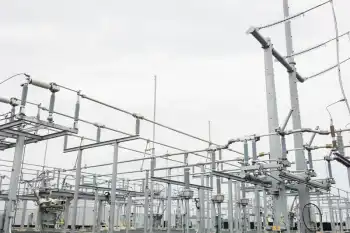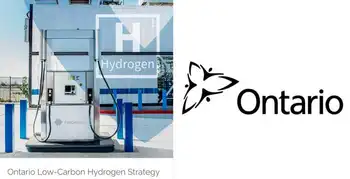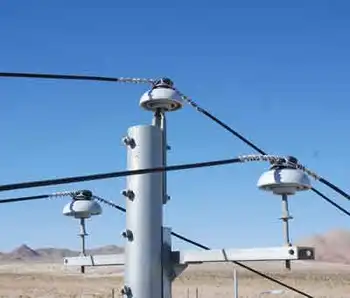Areva, New Brunswick reveal nuclear plans
By CBC News
Electrical Testing & Commissioning of Power Systems
Our customized live online or in‑person group training can be delivered to your staff at your location.

- Live Online
- 12 hours Instructor-led
- Group Training Available
Premier Shawn Graham, Energy Minister Jack Keir and officials from French nuclear giant Areva made the announcement in Saint John.
"The New Brunswick government recognizes the integral role the energy sector has in growing our economy," said Graham in a media release.
"Although this announcement is just a first step, a project of this magnitude would create 8,500 direct and indirect jobs for New Brunswickers in all regions of our province."
The potential light water reactor may also come with a proposed clean energy park that may also include offshore wind, biomass and solar power generation.
Graham emphasized during the news conference that the proposal will carry no financial risk for the provincial government.
Areva must find the financing if the project is to proceed, according to the premier.
Jacques Besnainou, the chief executive officer of Areva, said he expects the province to help build a business case for the reactor.
But Areva also said that it would be entirely responsible for managing the design, construction and financing.
Besnainou said he believes there is demand both in Atlantic Canada and the northeastern United States for the power that would come from the reactor in 2020.
The letter of intent sets out that NB Power and the provincial government will work "intensively" with the French company to hammer out a detailed agreement by the end of 2010.
NB Power is going to be in charge of operating the unit and for any technical and regulatory support during the licensing phase.
NB Power operates the Point Lepreau station, which is Atlantic Canada's only nuclear reactor. When the station was licensed in the 1970s it was permitted to hold more than one reactor.
Among the terms of the letter of intent is a clause that states it does not form a legal partnership, joint venture, or any legal entity between the two parties.
The French company has 50,000 employees worldwide and 5,000 workers in North America. The company has operated in Canada for 40 years.
This is the second time that Areva has tried to get a foothold in New Brunswick's nuclear industry. Areva lost its previous attempt to Atomic Energy of Canada Ltd. and its consortium of partners in 2007.
The New Brunswick government committed in its 2006 election platform to study the feasibility of a second reactor. AECL and its partners produced a feasibility study showing the reactor project would work and had started lining up potential investors.
The AECL proposal was abandoned recently as the federal Crown nuclear agency was running into significant delays with the $1.4-billion refurbishment project at Point Lepreau.
New Democratic Party Leader Roger Duguay dismissed the announcement as political grandstanding and said calling it "clean energy" was a complete misnomer.
"Those companies like to talk about nuclear, but they don't like to talk about what they're going to do after with the waste," he said.
Duguay also said the track record of Areva should be taken into account, citing a Finnish project that has doubled in cost and has been delayed by more than two years.
"The people of Finland are waiting for four years and already the cost for the construction of that plant is doubled and I don't think we should repeat that experience here in New Brunswick," he said.
The Progressive Conservatives have also blasted the discussions as political opportunism, noting the provincial election is scheduled for Sept. 27. Before losing the 2006 election, the Tories had also committed to studying the feasibility of a second reactor.











